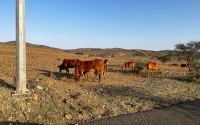
Pastoral Farming in the Kingdom of Saudi Arabia is the practice of raising sheep, cows, or camels. These animals are herbivorous and domesticated mammals, primarily utilized for their meat and milk, for obtaining wool, leather, and other products, or for producing labor. Additionally, certain livestock, like camels, are used for transportation, trade purposes, and agricultural activities. Pastoral farming across cultures and time periods Livestock is globally defined as domesticated animals rai...
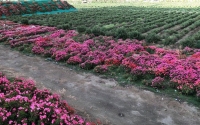
Yes, the Kingdom of Saudi Arabia produces essential oils, particularly in provinces such as Jazan, Makkah al-Mukarramah (specifically Taif Governorate), and al-Bahah. Jazan Province is famous for cultivating aromatic plants, such as jasmine, which, alongside other aromatic plants like screwpine, daffodil, marjoram, wormwood, mugworts, and bulrush, constitute cultural and social heritage. These plants are traditionally associated with weddings, feasts, welcoming guests, celebrating births, and a...
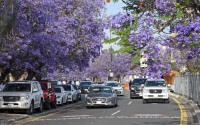
Jacaranda is widely cultivated in the Kingdom of Saudi Arabia, particularly in Aseer Province, specifically in Abha City. Abha hosts around 14,000 Jacaranda trees that bloom by spring, with some taking on a white hue. This plant belongs to the family Bignoniaceae and its leaves are compound pinnate, opposite, alternate. Its branches are arched, with the tips pointing upwards like an inverted umbrella, which extends its shade. There are forty-five species of the Jacaranda genus, ranging from tre...
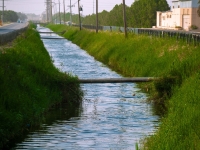
Al-Ahsa Water Springs are natural springs that once formed a traditional irrigation network in al-Ahsa Governorate in the Eastern Province before the implementation of the irrigation and drainage project. The agricultural oases in the governorate relied on approximately thirty natural springs, some of which continue to flow. Al-Ahsa Irrigation and Drainage Authority (formerly), which is currently the Saudi Irrigation Organizationcollaborated with the Saudi Tourism Authority to transform the...
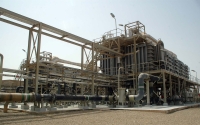
Farasan Desalination Plant is one of the stations affiliated with the Saudi Water Authority in the Kingdom of Saudi Arabia. It is located in Farasan Governorate in Jazan Province on the Red Sea coast. It provides the local population with their demand for desalinated water. Stages of production The water production system at the Farasan Saline Water Desalination Plant has gone through three stages, with the first stage 'Farasan One' established in 1979, having a production capacity of...
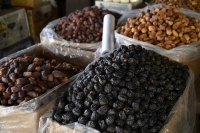
Al-Madinah al-Munawwarah Dates are the dates produced by palm farms in al-Madinah al-Munawwarah Province, located in the west of the Kingdom of Saudi Arabia. It is famous for specific varieties, such as Ajwa al-Madinah , which Prophet Muhammad, peace be upon him (PBUH), encouraged to eat every morning. In 2019, al-Madinah al-Munawwarah Province produced more than 213,000 t of dates. The palms of al-Madinah al-Munawwarah hold a special place among Muslims. The Prophet's Mosque was roofed wi...

It is one of the initiatives aimed at planting fifty billion trees across the Middle East and North Africa, and rehabilitating two hundred million ha of degraded land; contributing to a 2.5 percent reduction in global carbon emissions, in addition to cooperating to reduce carbon emissions from oil and gas production in the region by more than 60 percent. The Green Middle East Initiative, announced by Crown Prince and Prime Minister, His Royal Highness Prince Mohammed Bin Salman Bin Abdulaziz Al...
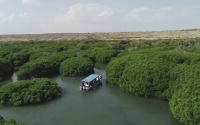
There are several challenges facing the forests in the Kingdom of Saudi Arabia due to human activities, which have a negative impact on the forests. These challenges include tree cutting, wood collection, expansion and urban expansion, overgrazing, wildfires, high visitor numbers, harmful behaviors affecting the environment and vegetation cover, and mining activities such as quarries. In order to preserve the forests, the Kingdom has shown concern and has worked towards their development throug...
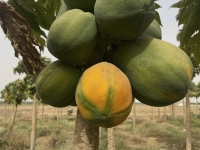
Yes, they are often cultivated in Jazan Province in the southwest of the Kingdom of Saudi Arabia. Jazan's lands host approximately 4,336,832 trees of five tropical fruit varieties: mangoes, figs, bananas, guavas, and papayas. Their annual production reaches about 107,305 t. Jazan Province possesses agricultural potential due to its fertile lands, moderate climate, abundant groundwater, and ample rainfall. Additionally, it benefits from advanced farming systems, efforts to enhance agricultu...
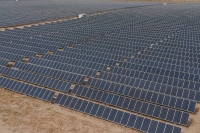
The Solar-Powered Seawater Desalination Project in the Kingdom of Saudi Arabia is an initiative aimed at desalinating water and addressing the challenge of water scarcity by leveraging the abundant solar resources available in the country. It is one of the projects under Saudi Vision 2030 . Its implementation began as part of the Custodian of the Two Holy Mosques' initiative for seawater desalination using solar energy. The project was inaugurated by His Royal Highness Prince Mohammed Bin ...
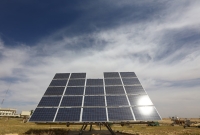
The Adsorption Desalination Plant is one of the energy projects in Saudi Vision 2030 , and the world's first industrial-scale application of adsorption cooling technology for water desalination, coupled with industrial-sized salt crystallization. It produces about five thousand m 3 of desalinated water daily. It was inaugurated on February 21, 2017, and is located in al-Uyaynah, which is administratively affiliated with Diriyah Governorate in the Kingdom of Saudi Arabia. The plant was co...
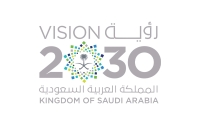
The Kingdom of Saudi Arabia's vision for reducing carbon emissions is to reduce carbon emissions by 2030. Saudi Arabia is committed to generating 50 percent of its electricity from renewable sources by 2030 through a series of ambitious programs and projects aimed at reducing emissions. These programs include investing in new energy sources, enhancing energy efficiency, and upgrading carbon capture and storage programs. Saudi Arabia has launched seventy-seven environmental and clean energy...